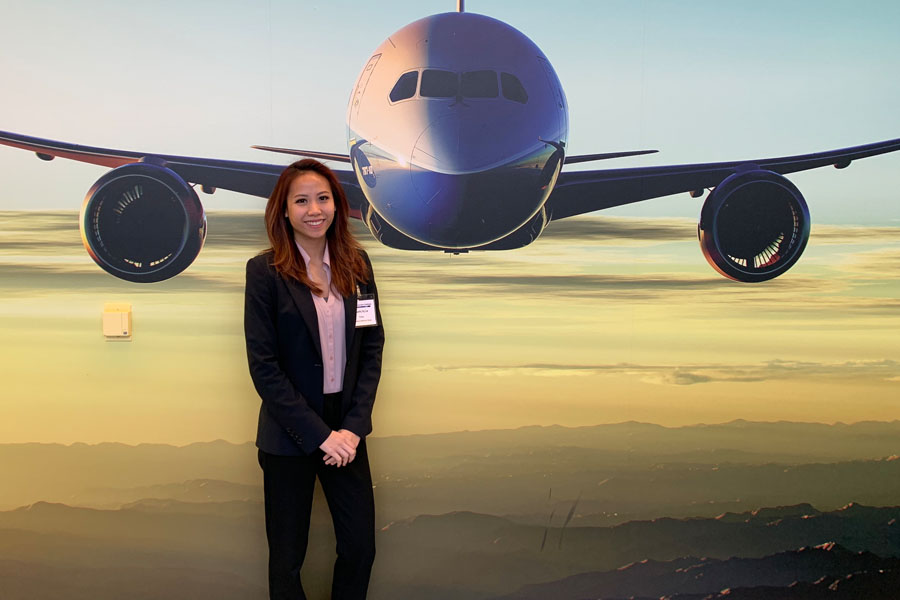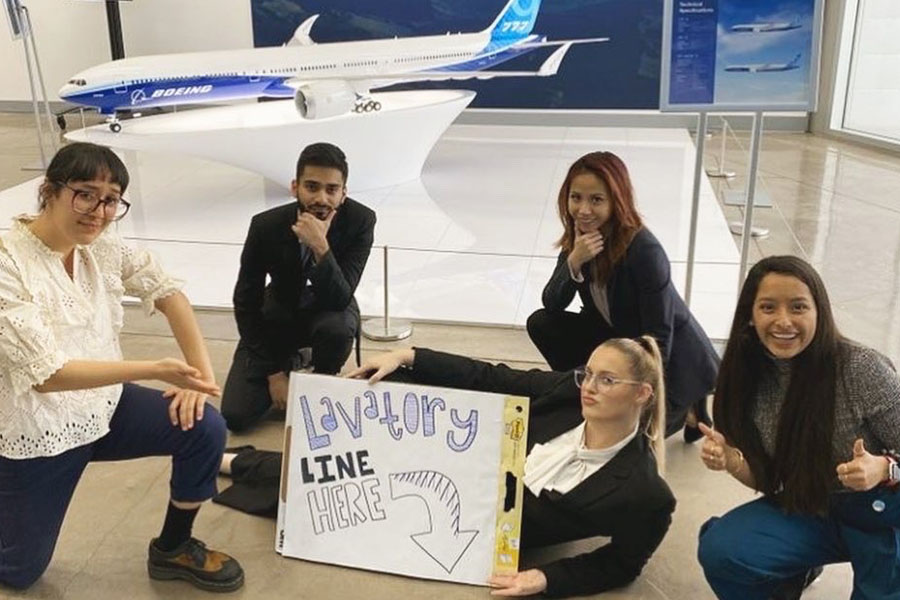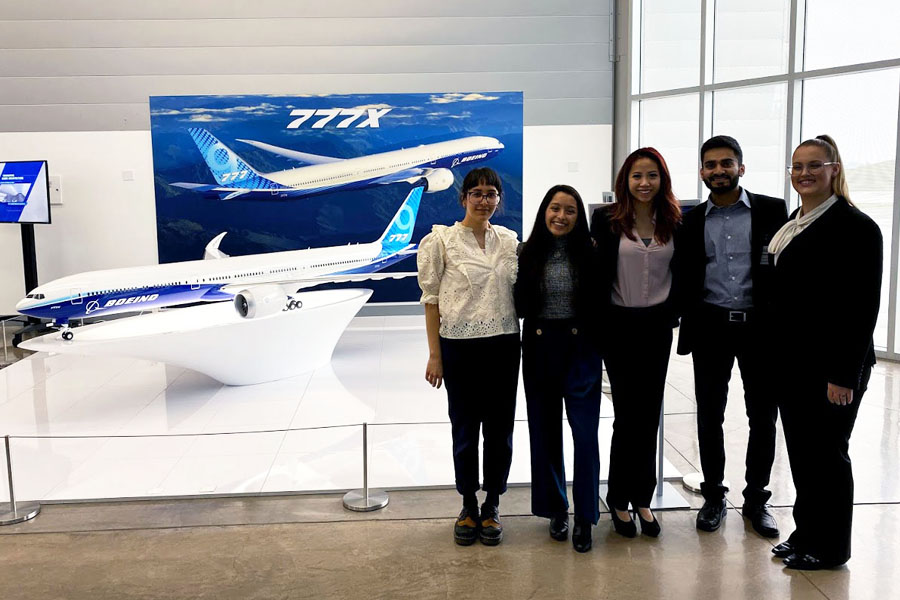BME senior wins gold in Boeing Innovation Challenge

Vy Le served on the five-person, multi-university team that received the gold award as its idea was chosen over 70 others in a contest with some 200 participants. The competition culminated in a two-day hackathon followed by presentations to Boeing judges at the Boeing Future of Flight Museum in Mukilteo, Washington.
The winning solution: a seatback app to enable airplane passengers to reserve a place in a virtual queue for the lavatory. Integrated with a plane’s in-flight entertainment system, the app is designed to promote safety for travelers, especially those with mobility or medical issues, and facilitate flight attendants’ safe movement in the cabin.
In addition to Le, six other Purdue students served on top-10 teams in the final round. Representing Purdue Engineering were Sean Franiak, a graduate student in the School of Aeronautics and Astronautics, as well as Erin Gummersbach and Ellen Van Daele, sophomore Honors students in the School of Mechanical Engineering.


“The Boeing Innovation Challenge offers our students excellent professional development opportunities,” says Joe Tort, associate director of the Global Professional Practice in the Office of Professional Practice, who coordinated Purdue’s challenge participation. “The competition brings our students together with other high-achieving students from top-tier universities who have diverse training, knowledge bases and ideas. Students get to see how Boeing – one of the largest companies – innovates, and present their ideas to and interact with Boeing executives. The students also gain a valuable credential for their resumes.”
Boeing judges were highly impressed by the winning solution. “What we were looking for – and we found – is for the students to demonstrate not just technical, academic and problem-solving knowledge, but also innovation, ideation and the ability to work together in a cross-functional team,” says Mithra Sankrithi, from Boeing Commercial Airplanes Product Development, who oversaw the challenge.
“We all collaborated equally, and I feel like we were all really enthusiastic with the ideas, so that really helped the process,” Le says of her “Cosmic Trojaneers” team, which also included students from The University of Texas at Austin and the University of Southern California.
“An immense learning experience”
“The Boeing Innovation Challenge was an immense learning experience that presented unique challenges which differed from my Purdue Engineering classes and a product development co-op at Zimmer Biomet, a medical device company,” Le says. “The competition required adaptability, as our team members met face-to-face for the first time in Washington, we were in a new environment, and the time constraints necessitated working extremely efficiently. The conditions required us to work to our individual strengths, reach out to get more insight, and acquire new skills to deliver a captivating pitch.”
Le adds: “Perhaps most importantly, this experience heavily emphasized the need to take initiative. We were free to do what we wanted and resources seemed limitless, but it was up to us to organize and ensure we were productive under tight time pressure.”
Summing up the benefits, she says: “The Boeing Innovation Challenge provided an opportunity to work with experts at Boeing to help advance safety for the future of flight. I feel accomplished knowing that in only a few days, our team collaborated well and built what Boeing executives deemed the winning solution.”
